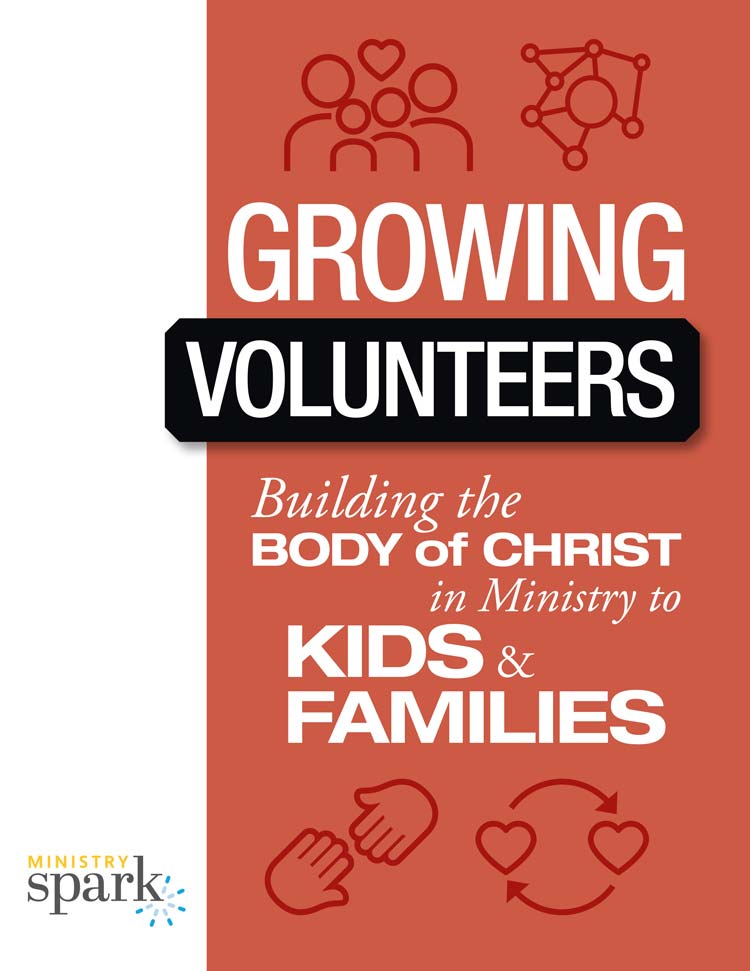Successfully leading a children’s ministry begins with building relationships. We should work to build healthy relationships with kids, parents, and our volunteers. We all know that our best ministry happens in the context of relationships.
This is absolutely true! And the most important relationship in your children’s ministry is your relationship with God.
Ministry is hard, and it can take its toll on a leader. Ed Young once said, “ministry is brutiful!” What you do each week is demanding, tiring, many times thankless, time-consuming, and just plain hard (while also being so beautiful).
And it doesn’t take too much for us to get to the point where we’re just going through the motions, relying on our own strength and wits. We blink, and the depth of our relationship with God is replaced by the duty in our reality of ministry.
Don’t let it happen! Protect yourself from a broken relationship with the One who placed you in His service, above and beyond any duty you may perform in that service. Take care of your soul.
You are more than what you do.
Leading Children’s Ministry through Relationships
Relationship with God
We all know the doing part of growing, don’t we? The challenge is doing the things from a place of being with God. Always be with God before you do for God!
- Read your Bible.
Don’t wait for the lesson to put you in Scripture—read your Bible every day as you spend time with God.
- Pray.
Our weekly ministries should be an outflow of our time with God. Are you talking with God? As Oswald Chambers said, “Prayer does not equip us for greater works, prayer is the greater work.”
- Be in church and fellowship.
You need worship, refreshment, accountability, and community too. Spend time in the church service, even if it’s only once or twice a month. Make sure regular worship and fellowship are worked into your rotations for your volunteers too. It’s that important.
- Take your time off.
If there isn’t ‘enough time’ for you to take time off, then there are things you need to take off your plate. Evaluate and see what you can quit, what you can give to someone else, and what you can do later. Burnout is real—take the time off.
- Focus on more than ministry.
You shouldn’t be defined by what you do for God, but rather who you are in God. Your family, your church, and your spirit will benefit by how you define yourself. You are more than what you do.
Spending time with God is the most important thing you can do for yourself and for those around you.

Relationships with Staff and Volunteers
Everything rises and falls on leadership, and your children’s ministry will only rise to the level that you and your core leaders can take it.
So, what are some keys to building relationships with your team as you’re leading children’s ministry? Here’s a few ideas for you for loving your team well!
- Build relationships first and foremost for the sake of relationship.
While we want to develop leaders and build our teams, it’s important to know who is serving in your ministry. People enjoy being around their friends. Relationship is key to doing life together, building community, and growing together in Christ.
- Create opportunities for relationship building.
One of the best ways to get to know people and build relationship is to connect with them in different environments. If all we ever care about is getting things done, we’ll neglect relationships and only see one another for what we do and not who we are.
- Don’t always make communication about ministry but always make it clear.
If the only time they see your name pop up on their phone is when you are calling them to ask them to do something, attend another meeting, ask a ministry question, then honestly, something is wrong. Check in on them and cheer them on!
- Serve them.
Personally, or within the ministry setting, serving others helps them want to connect relationally with you, their friend and leader.
- Share your life with them.
It’s not always appropriate for leaders to be fully transparent with everyone, but it’s important to be authentic with your leaders. Seeing your weaknesses, frustrations, and hurts (appropriately, of course) will only strengthen your relationship. Creating opportunities to know each other’s families is also a great way to share your life.
- Trust them.
Being a leader takes vulnerability, and the truth is, at one time or another, you will get hurt. It’s the nature of being in relationship with others. Don’t let that stop you from trusting those on your team.
- Be available.
I found that one of the keys to knowing volunteers was simply being available. Show up when and how you can for those in your ministry.
- Equip, empower, and expect your core leaders to build relationships.
In other words, make relationships a part of the culture of your ministry. We must build leaders to succeed long-term. The saying “There is no ‘I’ in team” became popular for a reason. While you are responsible for the children’s ministry at your church, you can’t control everything—you will push people away.
But Jesus was available in varying degrees, and we must be also. You cannot neglect those you serve with, so do what you can to know your team and build relationships with those who serve with you.

Growing Volunteers: Building the Body of Christ in Ministry to Kids and Families

Growing Volunteers: Building the Body of Christ in Ministry to Kids and Families

Growing Volunteers: Building the Body of Christ in Ministry to Kids and Families
Relationships with Parents
It’s important to invest ourselves in the intentional pursuit of relationships with the parents of the children in our ministries.
- Adopt a relational mindset.
It’s time to seek relationships with the parents in your ministry. They will be some of our best friends, volunteers, and partners.
- Create opportunities to connect.
Again here, create connection points outside of check-in each week. Even partner with other ministries at your church to make this happen!
- Lead a great children’s ministry.
Want to really connect with parents? Take care of their kids and engage them in something exciting and meaningful in your ministry. The more their kids are excited about what’s happening at church, the more excited they will be too!
Parents are our friends, and our ministries will be the better when we build relationships with them!
It’s impossible to meet people where they aren’t. So, meet them where they are.
Relationships with Kids: Leading Children’s Ministry
Obviously enough, when leading children’s ministry we need to also build relationships with kids! If you don’t know who you are serving, how can you really serve them?
Kids help you know the story of your ministry.
As the leader, you must know the story that is being written every week in your ministry. Each week’s program might be the chapters, your parents and leaders might be the pages, but your kids are the words. You must know the kids to be able to effectively minister.
Children keep you focused on what’s important.
Sometimes we need to be reminded of what’s most important. The whole point is helping kids know Jesus as He draws them to relationship with Himself. Seems obvious, doesn’t it? But it’s easy to forget amidst the craziness of ministry.
They give you much needed perspective.
Kids are simple but can be so profound. Kids tell it like it is. They are fun and curious and full of life. Let them give you a better perspective.
So, as children’s ministry leaders, how do we build relationships with kids? There are so many ways, but here are a few ideas
- Be aware and be ready.
You never know when you’ll have an opportunity to connect with a child. Be looking for opportunities and know how to maximize the moment.
- Have fun.
The single best way to engage a child in a relational connection is to make them smile. Ministry can be fun! Don’t forget it.
- Be real.
Kids are better than anyone at reading authenticity. You shouldn’t necessarily share your life story but be transparent with kids. Let them know you are a real person who makes mistakes, has feelings, and deals with real-life problems too. And don’t try and impress them, they will like you for you.
- Meet them in their world.
It’s impossible to meet people where they aren’t. So, meet them where they are. Know what they like and engage them in their world.
- Listen as much (or more) than you talk.
It’s amazing what you will hear from kids. If you commit yourself to having a real relationship with them, it won’t be long until you hear their fears, their hurts, their dreams, their understanding of spiritual matters, and so much more. But you must listen and make them feel heard!
All these practices will go a long way toward connecting with kids in real relationships as you build a thriving team and lead in children’s ministry.











